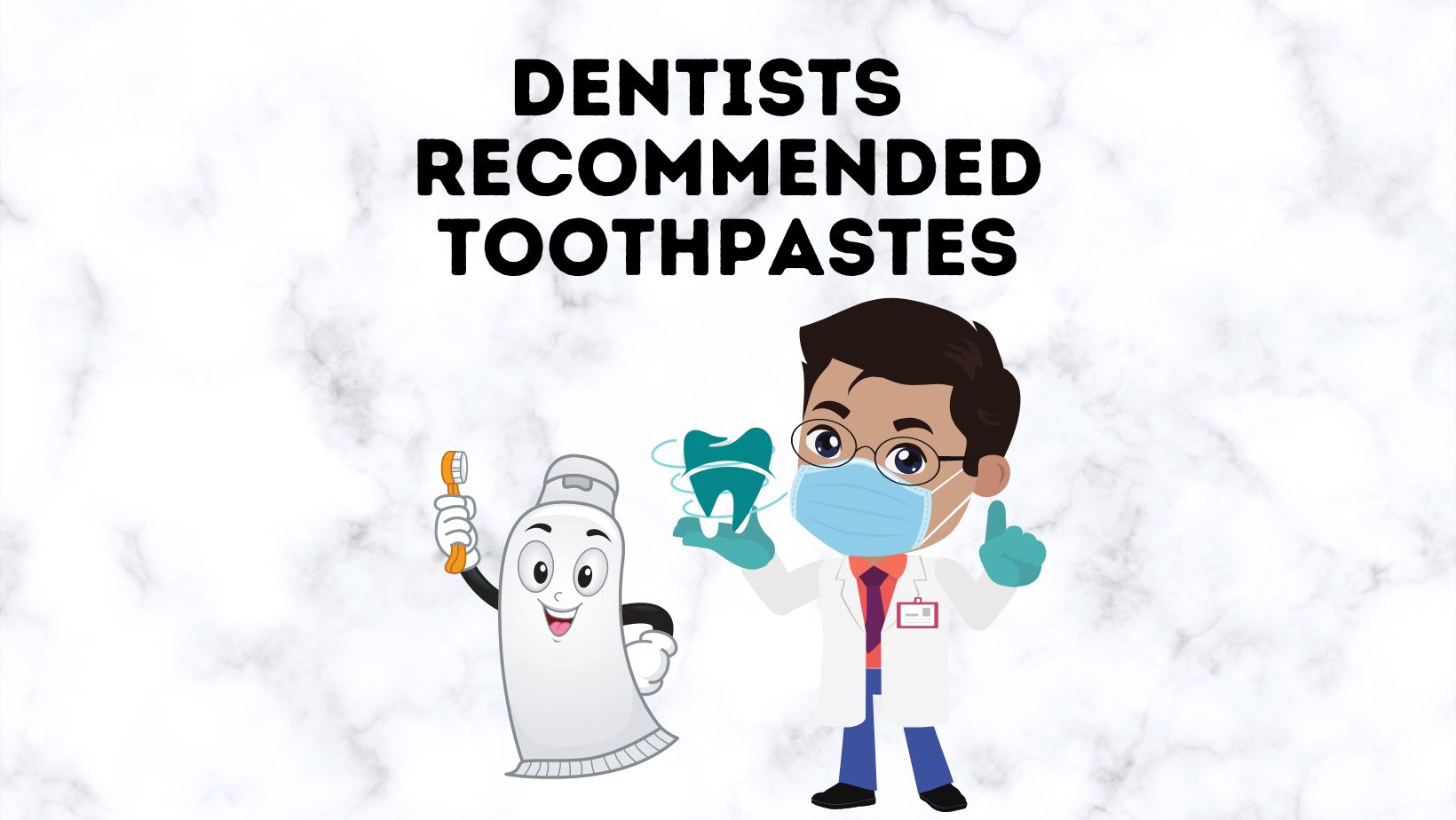
So, Which Toothpaste Is Recommended by Dentists? Our oral health is crucial for maintaining a beautiful smile and preventing dental issues. One essential aspect of oral hygiene is choosing the right toothpaste. With numerous options available in the market, it can be overwhelming to determine which toothpaste is truly recommended by doctors. In this article, we will explore the factors that make toothpaste highly recommended by dentists, the key ingredients to look for, and provide an overview of some top choices that promote excellent oral health.
Table of Contents
Importance of Choosing the Right Toothpaste
Toothpaste plays a significant role in our daily oral hygiene routine. It helps remove plaque, prevent tooth decay, freshen breath, and maintain healthy gums. However, not all toothpaste brands and variants are created equal. Dentists recommend specific toothpaste formulations based on their effectiveness in addressing common oral health concerns.
Key Factors in Recommended Toothpaste
When determining the best toothpaste, dentists consider several factors, including:
- Fluoride Content: Fluoride is a mineral that strengthens tooth enamel and helps prevent cavities. Dentists highly recommend toothpaste that contains fluoride, as it has been proven to be effective in reducing the risk of tooth decay.
- American Dental Association (ADA) Seal of Acceptance: The ADA evaluates toothpaste products for safety and effectiveness. Look for the ADA Seal of Acceptance on the packaging, as it indicates that the toothpaste has met the rigorous standards set by the organization.
- Specific Oral Health Needs: Different individuals have unique oral health needs. Dentists may recommend toothpaste variants tailored to address specific concerns, such as sensitivity, gum health, or whitening.
- Non-abrasive Formula: Toothpaste with excessive abrasiveness can erode tooth enamel over time. Dentists advise choosing toothpaste with a non-abrasive formula to protect the enamel while effectively cleaning the teeth.
Key Ingredients to Look for in Toothpaste
To make an informed choice, it is essential to understand the key ingredients commonly found in recommended toothpaste. These ingredients contribute to the overall effectiveness of the toothpaste in promoting oral health. Here are some important ones to look for:
- Fluoride: As mentioned earlier, fluoride is a crucial ingredient that helps prevent tooth decay by strengthening tooth enamel.
- Calcium Carbonate: This mild abrasive aids in removing plaque and surface stains without being overly abrasive on the teeth.
- Potassium Nitrate: This ingredient is commonly found in toothpaste for sensitive teeth. It helps reduce tooth sensitivity by blocking nerve signals.
- Stannous Fluoride: Known for its antimicrobial properties, stannous fluoride helps fight bacteria, reduces plaque formation, and promotes gum health.
- Sodium Bicarbonate (Baking Soda): Baking soda is a natural whitening agent that gently removes stains and neutralizes acids in the mouth, freshening breath.
- Xylitol: Xylitol is a sugar substitute that not only sweetens the toothpaste but also inhibits the growth of harmful bacteria, reducing the risk of tooth decay.
- Essential Oils (e.g., Peppermint, Spearmint): These oils provide a pleasant flavor and help freshen breath.
Top Recommended Toothpaste Choices
While the ultimate choice of toothpaste depends on individual needs and preferences, several brands have consistently received recommendations from dentists.
Here are some top choices that dentists to their patients:
- Colgate Total: This toothpaste contains fluoride and triclosan, which provides antibacterial benefits and fights plaque. It is effective in maintaining overall oral health.
- Crest Pro-Health: With stannous fluoride as its key ingredient, Crest Pro-Health offers comprehensive protection against cavities, plaque, gingivitis, and sensitivity.
- Sensodyne: Sensodyne toothpaste is specifically designed for individuals with sensitive teeth. It contains potassium nitrate, which helps alleviate tooth sensitivity over time.
- Arm & Hammer Advance White: This toothpaste utilizes baking soda to gently remove stains and provide a brightening effect while freshening breath.
- Tom’s of Maine Natural Toothpaste: For those seeking natural toothpaste options, Tom’s of Maine offers fluoride-based toothpaste with natural ingredients and no artificial flavors, colors, or preservatives.
Remember, it is important to consult your dentist for personalized recommendations based on your specific oral health needs.
Personal Preferences and Needs
While the factors mentioned above are commonly recommended by dentists, personal preferences and individual needs should also be considered. Toothpaste comes in various flavors, textures, and formulations to suit different preferences. Some individuals may require toothpaste that is free of certain ingredients due to allergies or sensitivities. Consulting with your dentist can help determine the best toothpaste for your specific dental needs.
Conclusion
Choosing the right toothpaste is crucial for maintaining optimal oral health. Dentists recommend toothpaste that contains fluoride, has the ADA Seal of Acceptance, and addresses specific oral health concerns. Understanding the key ingredients in toothpaste helps make informed decisions, and dentists often recommend options like Colgate Total, Crest Pro-Health, Sensodyne, Arm & Hammer Advance White, and Tom’s of Maine Natural Toothpaste.
Remember to maintain a consistent oral hygiene routine by brushing your teeth at least twice daily and visiting your dentist regularly for check-ups and professional cleanings. With the right toothpaste and proper oral care, you can enjoy a healthy and radiant smile for years.
In conclusion, when choosing a toothpaste recommended by dentists, look for one that contains fluoride and carries the ADA Seal of Acceptance. Consider additional factors such as tartar control, gum health, sensitivity relief, and personal preferences. Regular brushing with a toothpaste that meets these criteria, proper oral hygiene practices, and regular dental check-ups can contribute to maintaining good dental health.

Hi, This is Lyn, I suffer from dental sensitivity for a very long time. PowerToothpaste.com is where I share my views of various toothpaste brands, along with tips on how to use toothpaste and what to look for when purchasing.
